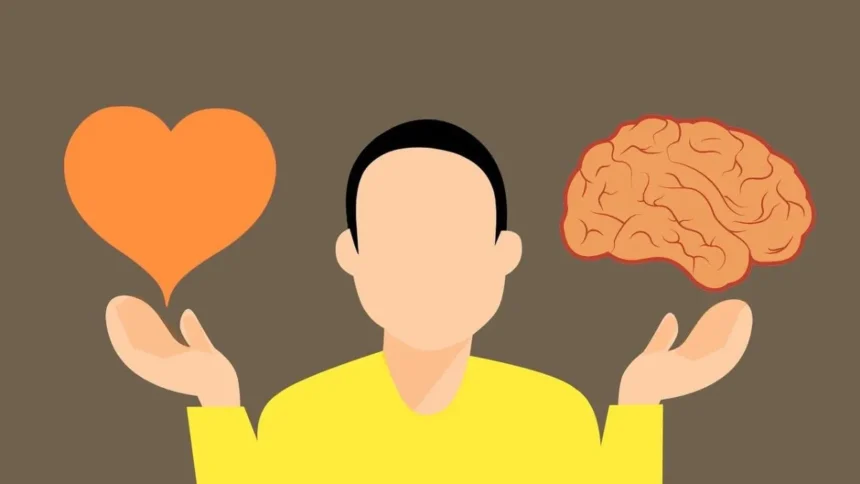Emotional Intelligence (EI) refers to the ability to recognize, understand, and manage our own emotions while also being able to perceive and influence the emotions of others. Coined by psychologists Peter Salovey and John Mayer and popularized by Daniel Goleman, EI encompasses skills such as emotional awareness, empathy, self-regulation, and interpersonal communication. These skills play a pivotal role not just in personal and professional settings but also in educational environments, shaping students’ success and well-being.
Importance of Emotional Intelligence in Modern Life
In today’s fast-paced and interconnected world, emotional intelligence has emerged as a critical factor for success. It helps individuals build stronger relationships, navigate social complexities, and make informed decisions. In education, EI is essential for creating an inclusive, understanding, and supportive environment conducive to learning and personal growth.
Key Components of Emotional Intelligence
Self-Awareness
Self-awareness is the ability to recognize and understand your emotions, triggers, and behaviors. In education, fostering self-awareness among students helps them better manage their academic and social lives.
Self-Regulation
Self-regulation involves managing one’s emotions effectively. For students, this means controlling impulses, adapting to changes, and staying focused on goals.
Motivation
Intrinsic motivation, a key component of EI, drives students to achieve academic excellence and personal development. It instills a love for learning and perseverance in the face of challenges.
Empathy
Empathy is the ability to understand and share the feelings of others. In the classroom, empathy promotes respect, collaboration, and a sense of community among peers.
Social Skills
Social skills include effective communication, conflict resolution, and teamwork. These skills are vital for students to thrive in collaborative educational settings and future workplaces.
The Role of Emotional Intelligence in Education
Enhancing Academic Performance
Studies have shown that students with high emotional intelligence perform better academically. They can manage stress effectively, stay motivated, and seek help when needed, leading to improved grades and retention rates.
Building Positive Relationships
EI helps students and teachers build stronger, positive relationships. Teachers with high EI can connect with students on a deeper level, understand their needs, and create a supportive learning environment.
Promoting Mental Health
Education systems that prioritize emotional intelligence contribute to students’ mental well-being. Teaching EI skills such as stress management and resilience helps students cope with anxiety, depression, and other emotional challenges.
Fostering Inclusivity and Diversity
EI encourages inclusivity by promoting understanding and respect for diverse perspectives. In multicultural classrooms, these skills are crucial for building harmonious relationships and reducing conflicts.
Strategies to Integrate Emotional Intelligence in Education
Teacher Training
Educators should receive training in emotional intelligence to effectively impart these skills to students. Workshops and professional development programs can enhance teachers’ ability to manage their emotions and foster a positive classroom environment.
Curriculum Design
Integrating emotional intelligence into the curriculum is essential. Lessons on empathy, conflict resolution, and emotional management can be incorporated into existing subjects or taught as standalone courses.
Collaborative Learning
Group activities and projects encourage teamwork and the development of social skills. Collaborative learning environments help students practice empathy, communication, and problem-solving.
Mindfulness and Meditation
Mindfulness practices enhance self-awareness and emotional regulation. Schools can introduce mindfulness programs to help students and teachers manage stress and improve focus.
Emotional Support Systems
Establishing emotional support systems, such as counseling services and peer mentoring, ensures students have access to help when facing emotional difficulties. These resources create a nurturing environment for growth and learning.
Case Studies: Success Stories in Emotional Intelligence Education
Finland’s Holistic Approach
Finland’s education system emphasizes holistic development, including emotional intelligence. Schools in Finland focus on building relationships, fostering creativity, and supporting students’ emotional well-being, leading to high academic achievements and life satisfaction.
SEL Programs in the U.S.
Social and Emotional Learning (SEL) programs in the United States have shown remarkable results. Programs like CASEL’s framework provide evidence-based practices to teach emotional intelligence, resulting in better academic performance, reduced behavioral issues, and improved emotional health.
Challenges in Implementing Emotional Intelligence in Education
Lack of Awareness
Many educators and policymakers remain unaware of the importance of emotional intelligence in education, leading to its exclusion from curricula.
Resource Constraints
Limited resources and funding often hinder schools from implementing EI programs effectively. Training teachers and developing materials require substantial investment.
Cultural Barriers
In some cultures, discussing emotions openly is considered taboo, making it challenging to teach EI in schools. Overcoming these barriers requires culturally sensitive approaches.
Measuring Emotional Intelligence
Assessing EI is complex and subjective. Developing reliable tools to evaluate students’ emotional intelligence remains a challenge.
The Future of Emotional Intelligence in Education
Technology and EI
Advancements in technology can support the integration of EI in education. AI-powered tools and apps can help students practice emotional regulation, empathy, and social skills in interactive ways.
Global Initiatives
Organizations worldwide are recognizing the importance of EI in education. Collaborative efforts between governments, NGOs, and educational institutions can expand access to EI programs and resources.
Lifelong Learning
Emotional intelligence is not limited to formal education. Promoting lifelong learning opportunities for EI development ensures individuals continue to grow emotionally and socially throughout their lives.
Conclusion
Emotional intelligence is a cornerstone of modern education, fostering academic success, mental well-being, and strong interpersonal relationships. By integrating EI into educational systems, we prepare students to navigate the complexities of life with empathy, resilience, and confidence. As we embrace the importance of emotional intelligence, we pave the way for a brighter, more inclusive future for learners worldwide.







